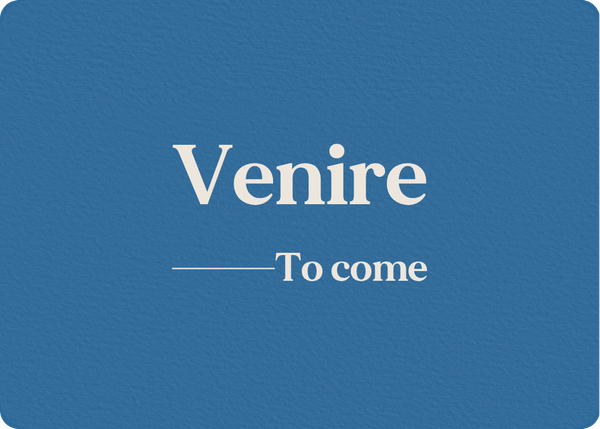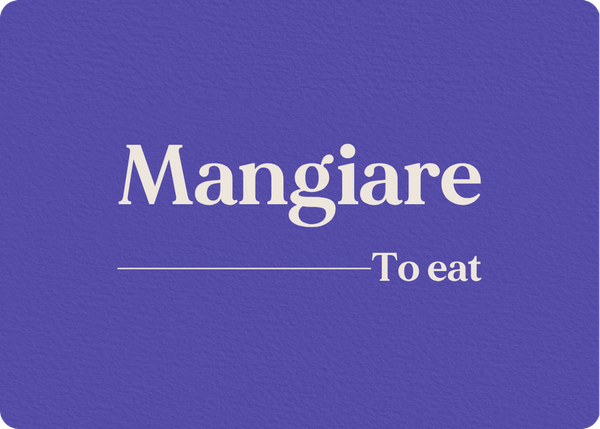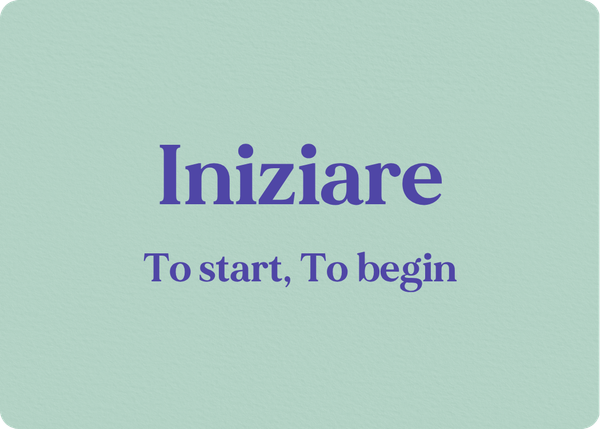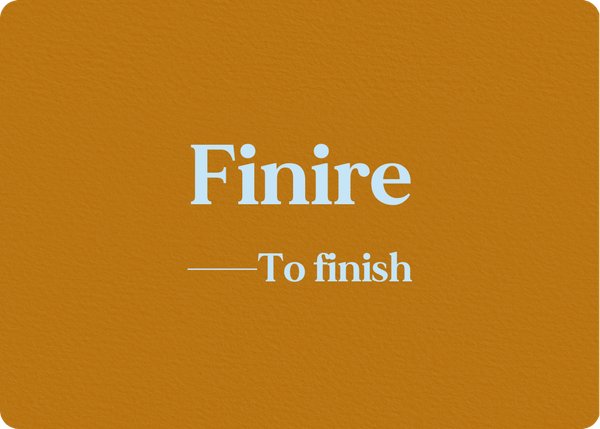What is Venire?
Venire is one of the most essential Italian irregular verbs meaning "to come". It belongs to the third conjugation (-IRE verbs), but is highly irregular in many tenses. This fundamental verb is absolutely crucial for expressing movement toward the speaker, arrival, and origin in Italian conversation and is one of the most frequently used verbs in daily Italian communication.
Key Features of Venire:
- Type: Irregular third conjugation verb (-IRE)
- Meaning: To come, to arrive, to happen
- Irregularities: Present tense (vengo, etc.), simple past (venni, etc.), future (verrò), present subjunctive (venga), conditional (verrei), imperative (vieni, etc.), past participle (venuto)
- Auxiliary verb: Uses "essere" (to be) for conjugation in compound tenses
- Past participle: Venuto
Indicativo – Indicative Mood
Presente (Present Tense)
| Person | Conjugation |
|---|---|
| io | vengo |
| tu | vieni |
| lui/lei | viene |
| noi | veniamo |
| voi | venite |
| loro | vengono |
Example:
Vengo da te tra dieci minuti.
I'm coming to you in ten minutes.
Passato Prossimo (Present Perfect)
| Person | Conjugation |
|---|---|
| io | sono venuto/a |
| tu | sei venuto/a |
| lui/lei | è venuto/a |
| noi | siamo venuti/e |
| voi | siete venuti/e |
| loro | sono venuti/e |
Example:
Annalisa è venuta a trovarci ieri sera.
Annalisa came to visit us last night.
Imperfetto (Imperfect)
| Person | Conjugation |
|---|---|
| io | venivo |
| tu | venivi |
| lui/lei | veniva |
| noi | venivamo |
| voi | venivate |
| loro | venivano |
Example:
Da piccola venivo sempre qui con mia nonna.
As a child, I always used to come here with my grandmother.
Trapassato Prossimo (Past Perfect)
| Person | Conjugation |
|---|---|
| io | ero venuto/a |
| tu | eri venuto/a |
| lui/lei | era venuto/a |
| noi | eravamo venuti/e |
| voi | eravate venuti/e |
| loro | erano venuti/e |
Example:
Prima dell'arrivo del direttore, Sara era venuta in ufficio già due volte.
Before the director’s arrival, Sara had already come to the office twice.
Passato Remoto (Simple Past)
| Person | Conjugation |
|---|---|
| io | venni |
| tu | venisti |
| lui/lei | venne |
| noi | venimmo |
| voi | veniste |
| loro | vennero |
Example:
Venni in questa città per la prima volta nel 1990.
I came to this city for the first time in 1990.
Trapassato Remoto (Past Anterior)
| Person | Conjugation |
|---|---|
| io | fui venuto/a |
| tu | fosti venuto/a |
| lui/lei | fu venuto/a |
| noi | fummo venuti/e |
| voi | foste venuti/e |
| loro | furono venuti/e |
Example:
Dopo che fu venuto a conoscenza dei fatti, agì subito.
After he had become aware of the facts, he acted immediately.
Futuro Semplice (Simple Future)
| Person | Conjugation |
|---|---|
| io | verrò |
| tu | verrai |
| lui/lei | verrà |
| noi | verremo |
| voi | verrete |
| loro | verranno |
Example:
I miei amici verranno a trovarmi domenica.
My friends will come to visit me on Sunday.
Futuro Anteriore (Future Perfect)
| Person | Conjugation |
|---|---|
| io | sarò venuto/a |
| tu | sarai venuto/a |
| lui/lei | sarà venuto/a |
| noi | saremo venuti/e |
| voi | sarete venuti/e |
| loro | saranno venuti/e |
Example:
Quando saremo venuti a conoscenza dei risultati, decideremo cosa fare.
Once we’ve found out the results, we’ll decide what to do.
Congiuntivo – Subjunctive Mood
Presente (Present Subjunctive)
| Person | Conjugation |
|---|---|
| che io | venga |
| che tu | venga |
| che lui/lei | venga |
| che noi | veniamo |
| che voi | veniate |
| che loro | vengano |
Example:
Spero che venga anche tua sorella alla festa.
I hope your sister comes to the party too.
Passato (Past Subjunctive)
| Person | Conjugation |
|---|---|
| che io | sia venuto/a |
| che tu | sia venuto/a |
| che lui/lei | sia venuto/a |
| che noi | siamo venuti/e |
| che voi | siate venuti/e |
| che loro | siano venuti/e |
Example:
È strano che Linda e Cesare siano venuti senza avvisare.
It’s strange that Linda and Cesare came without letting us know.
Imperfetto (Imperfect Subjunctive)
| Person | Conjugation |
|---|---|
| che io | venissi |
| che tu | venissi |
| che lui/lei | venisse |
| che noi | venissimo |
| che voi | veniste |
| che loro | venissero |
Example:
Avrei preferito che tu venissi domani.
I would’ve preferred if you came tomorrow.
Trapassato (Past Perfect Subjunctive)
| Person | Conjugation |
|---|---|
| che io | fossi venuto/a |
| che tu | fossi venuto/a |
| che lui/lei | fosse venuto/a |
| che noi | fossimo venuti/e |
| che voi | foste venuti/e |
| che loro | fossero venuti/e |
Example:
Se fossi venuta prima, avresti incontrato Oscar.
If you’d come earlier, you would’ve run into Oscar.
Condizionale – Conditional Mood
Presente (Present Conditional)
| Person | Conjugation |
|---|---|
| io | verrei |
| tu | verresti |
| lui/lei | verrebbe |
| noi | verremmo |
| voi | verreste |
| loro | verrebbero |
Example:
Verrei volentieri con voi, ma devo lavorare.
I’d love to come with you, but I have to work.
Passato (Past Conditional)
| Person | Conjugation |
|---|---|
| io | sarei venuto/a |
| tu | saresti venuto/a |
| lui/lei | sarebbe venuto/a |
| noi | saremmo venuti/e |
| voi | sareste venuti/e |
| loro | sarebbero venuti/e |
Example:
Sarei venuta prima se avessi saputo dell'emergenza.
I would have come earlier if I had known about the emergency.
Imperativo (Imperative)
| Person | Conjugation |
|---|---|
| (tu) | vieni |
| (lui/lei) | venga |
| (noi) | veniamo |
| (voi) | venite |
| (loro) | vengano |
Example:
Vieni subito qui!
Come here right now!
Indefinite Moods
Infinito (Infinitive)
- Presente: venire (to come)
- Passato: essere venuto (to have come)
Examples:
È bello venire qui in primavera.
It's nice to come here in spring.
Grazie per essere venuti a trovarmi ieri.
Thanks for coming to see me yesterday.
Participio (Participle)
- Passato: : venuto (come)
Example:
Lucia è venuta a salutarci prima di partire.
Lucia came to say goodbye before leaving.
Gerundio (Gerund)
- Presente: venendo (coming)
- Passato: essendo venuto (having come)
Examples:
Ho imparato molto venendo alle tue lezioni.
I learned a lot by coming to your lessons.
Essendo venuti presto, abbiamo trovato subito posto.
Since we got here early, we found a spot right away.
The verb Venire at a glance: Key tenses you need
| Present | Present Perfect | Imperfect | Present Subjunctive | Imperfect Subjunctive | Present Conditional |
|---|---|---|---|---|---|
| io vengo | io sono venuto/a | io venivo | che io venga | che io venissi | io verrei |
| tu vieni | tu sei venuto/a | tu venivi | che tu venga | che tu venissi | tu verresti |
| lui/lei viene | lui/lei è venuto/a | lui/lei veniva | che lui/lei venga | che lui/lei venisse | lui/lei verrebbe |
| noi veniamo | noi siamo venuti/e | noi venivamo | che noi veniamo | che noi venissimo | noi verremmo |
| voi venite | voi siete venuti/e | voi venivate | che voi veniate | che voi veniste | voi verreste |
| loro vengono | loro sono venuti/e | loro venivano | che loro vengano | che loro venissero | loro verrebbero |
Conclusion
Mastering the conjugation of "venire" is useful for expressing movement, arrival, and happening in Italian. This highly irregular third conjugation verb requires memorization of its unique forms, particularly the irregular present tense (vengo, etc.) and the distinctive simple past forms (venni, etc.).
Remember the key points:
- Uses "essere" as auxiliary verb in compound tenses
- Past participle is "venuto"
- Future/conditional stem changes to "verr-"
- Essential for indicating arrival and origin
Keep practicing with real sentences and contextual examples to master this fundamental Italian verb for expressing all forms of coming and movement!





